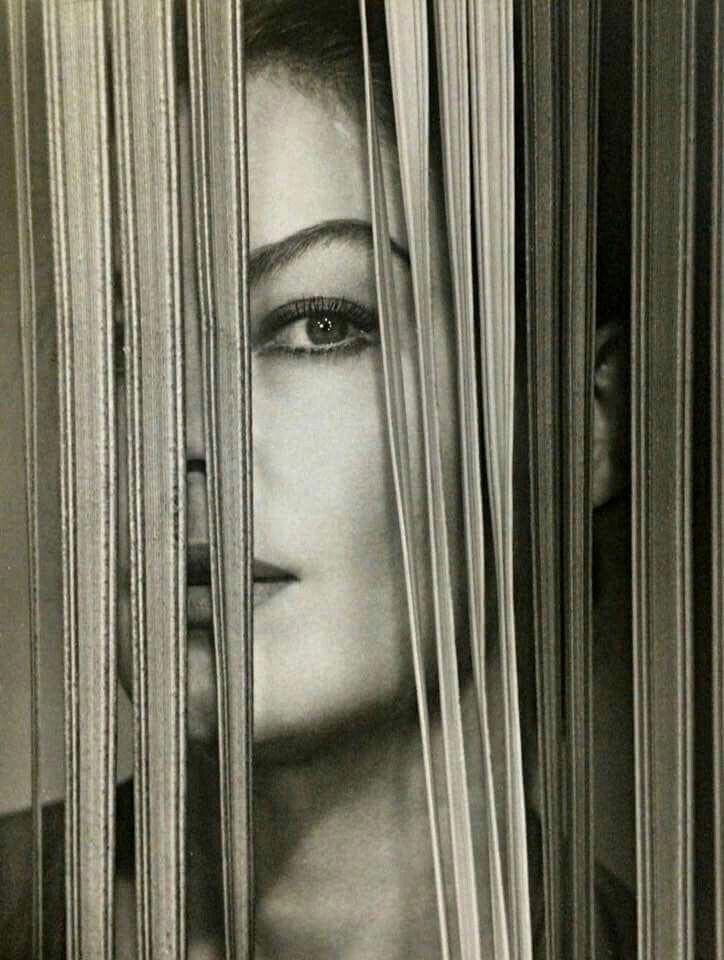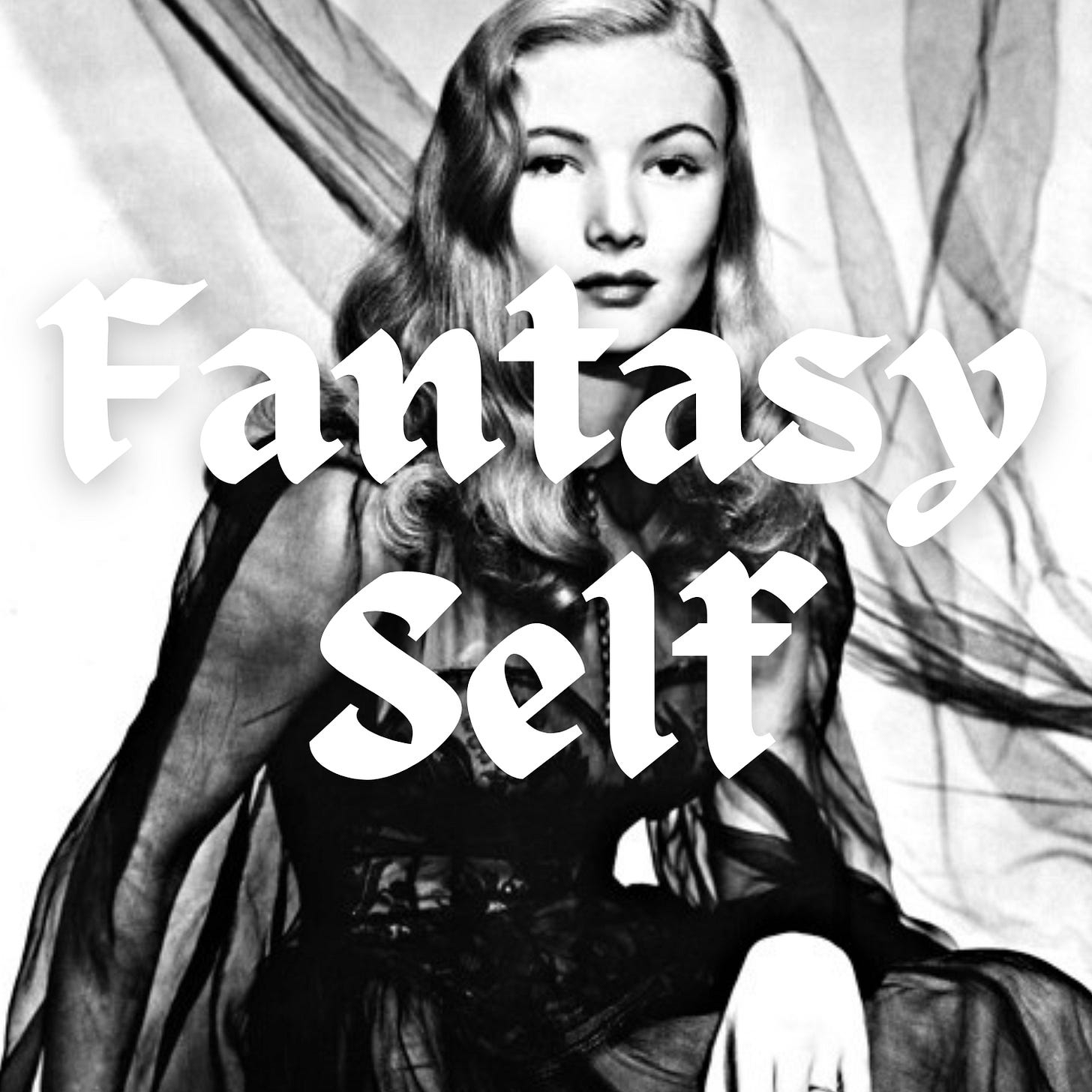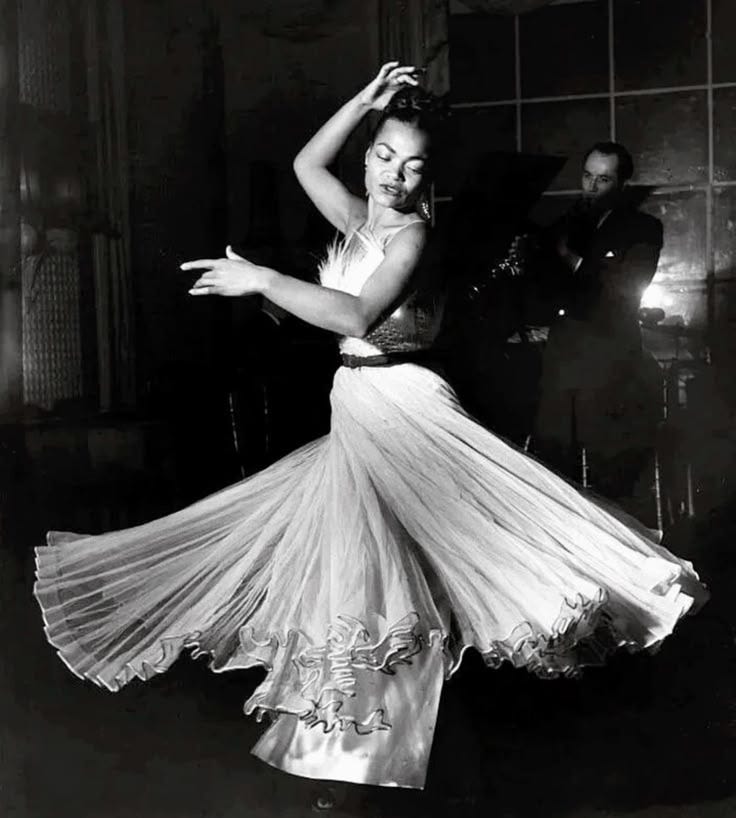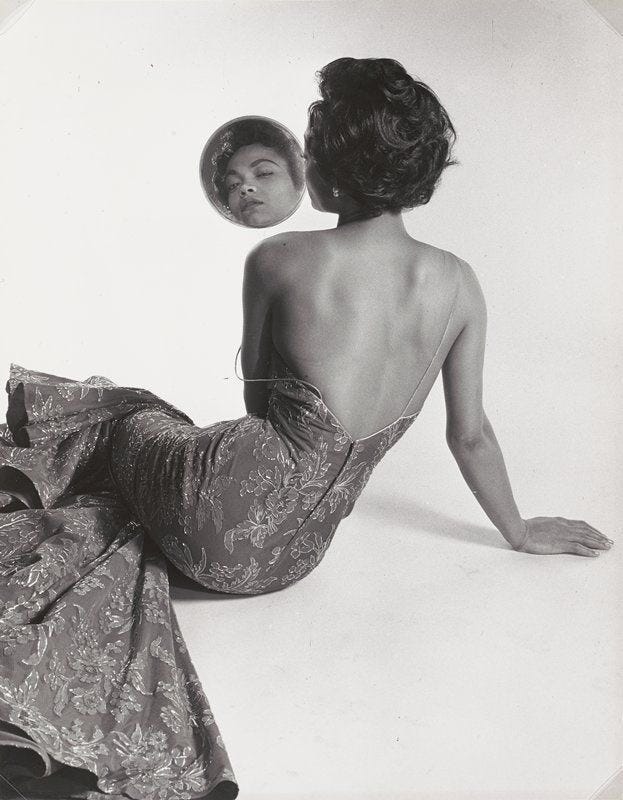Do You Believe In Magic?
Radical disclosures and a basic gut check on what this newsletter is (nothing's really changing, I'm just processing!)
About a year ago I started this newsletter. At the time I wanted to write in a scholarly way about glamour, and I meant for that to be my only theme.
But I have come up against roughly two problems. My first problem is, sometimes I write things other than essays, like poetry, and what I guess could be called autofiction. Sometimes I want to share it but I worry it will alienate people. So I have been sitting on my hands throughout the year, wanting to share things and being afraid to do so. The result is that I get less done overall than I would like. My output is not as high as it used to be because I have become self-conscious about the sheer range of my interests and the types of writing I enjoy.
And my second problem is, I worry that what I have to say about beauty and art and the rhetoric of desire is no longer that important or useful in these times of higher than average uncertainty. It has always been easy for me to doubt myself and continuously undermine my own talent. I am a sled dog that tries to convince itself it’s a housecat.
There is a secret third problem. And I do mean “secret.”
I’ve been keeping something from you about the nature of this whole thing. About the nature of glamour. And I don’t know how much longer I can keep hiding it because it would also mean hiding a part of myself. And what is writing if not the eternal striptease? You are not here because you are looking for ‘content1.’ You are here because you want to see something stirring just beyond the veil.
My Secret Revealed
So here it is: in my first newsletter I wrote that the word glamour comes from old Scots, and it originally meant a “shapeshifting spell.” And my publication tagline is “a culture newsletter about the magic of glamour.”
Well, the secret is that I am referring to spells and magic literally.

When I say that glamour is a shapeshifting spell, all I mean is that it’s symbolic communication with the unconscious. That is more or less what magic is. I know that the word magic sounds very woo-woo and silly. Many of you have probably already written me off as a bimbo and that’s okay.
But magic happens all the time. It’s just that most of us don’t know that it’s what we’re doing. And most of us don’t realize that this is what the Powers That Be are doing, too. All of them. The ones you like and the ones you don’t like2.
The Magic of True Change
Glamour is just one method of this symbolic communication, aimed at a specific goal. So what is the goal? We know that when seen in an advertisement or a photograph, it evokes a longing for transformation—that’s one of its hallmarks. That’s what separates it merely from an aesthetic of luxury or beauty alone. It compels us to want to shapeshift—to become someone new. Glamour involves projection of desire, always.
This happens at a collective level and a personal one. We all want to be someone different—our Fantasy Self—unless we’re uncommonly enlightened. But there’s a trickster at work, using the power of glamour to get us to—you guessed it—buy stuff but not do very much else. Many of our desires—for adventure, beauty, love, mastery, connection, significance, etc—have been relentlessly diverted into buying stuff. We now think that if we want to change our lives we can only do it with the help of American Express.
However, glamour is not a product of capitalism. It’s merely been co-opted by capitalism. And glamour doesn’t only want us to buy our way into trying to be more successful, more attractive, or whatever else. That’s what marketers want you to do3. Glamour has a bigger agenda.
As a phenomenon, it has existed well before the conditions that give rise to our terrific consumption habits. It long predates surveillance capitalism, the erosion of civic life, social isolation, social media, even modern advertising.
The Arthurian myths are glamorous. Homeric heroes are glamorous (Achilles and Hector, definitely—Odysseus not so much). Pre-Raphaelite art is glamorous. The Girl With The Pearl Earring is glamorous, and so, in her time, was the Mona Lisa before she was dulled with varnish.
None of those things I listed are advertisements, even as some of them are objects of commerce. So glamour has a different fundamental aim that has existed before the capitalist system we know today. Its symbolic communication is capable of acting on something other than our wallets.
It is pulling us toward the kind of real, tangible change in our personalities and our lives that would radically offend our egos and our conscious minds.
That’s why glamour has to be so compelling, and that’s also why it has to present a fantasy that’s effortless.
Because if you knew all the effort it would take to become your Fantasy Self—beautiful, charismatic, fully self-possessed, talented etc—you wouldn’t even try. If you knew all the rounds of ego death it would take, you’d never think twice about it. We are wired to avoid pain even more than we are to pursue pleasure. And changing hurts.
Glamour Is A Trick Mirror
But wanting is evidence of having. Like the slab of stone that became The David, there is something within you ready to be revealed. That’s who you see when you behold a glamorous image that makes you want to shapeshift, have a radically different life. You are not looking at someone else.
You are looking in a mirror.
Even if it feels insane to desire it, if you keep dreaming of a life that’s radically different than the one you’re living, and that desire comes from deep within, maybe that actually matters.
Many people spend their lives avoiding admitting to themselves or to others what it is they really want. Those suppressed desires end up creating a lot of chaos and discord in relationships. What a tragedy. And what a profound blessing that glamour continuously surfaces our desires, in shimmering mirages that linger as stubbornly as perfume on a fur coat.
My point is that you can take your own desires seriously, recognize the intangible quality behind the material symbol, and divert away from mindlessly buying stuff into a life that you like better. Even if you occasionally end up needing to buy something related to the creation of that life, it does not have the same compulsive quality as before if you understand what is really going on4.
This Is A Pro-Desire Newsletter
Glamour is one of the major ways we symbolically communicate about desires (eroticism and nostalgia, I am proposing based mostly just on my own intuition and sheer bravado, are the others). And desire gets a bad rap even as simultaneously it appears to be the engine of the entire universe.
I know it’s said that desire is at the root of all suffering, and that very well may be. But at the same time (because if it isn’t a paradox, it isn’t true), desires can be very wholesome. After all, they’re evidence that the work of creating the universe is not done. If the universe were already cooked, as the kids say, we would already be totally fulfilled and lacking for nothing. That’s what perfection means. And we wouldn’t want to change, because our changing would necessarily change the universe. (Because we are part of the universe!) And yet we do want to change. So the universe is not perfect, and so it is not done.

The Fantasy Self that seems to represent an effortless, elegant existence is an illusion. It represents freedom from pain and uncertainty, which of course is not possible. So yeah, it creates suffering—it creates tension in the mind—when it appears. And yet it is also spurring you to be part of the creation of the universe because it’s compelling you to change. As you change and your desires are fulfilled, they too begin to evolve.
You can ignore your desires. Or you can start to answer their call in a way that’s more deliberate and meaningful and lasting than the impulsivity our culture encourages.
To return to the statue metaphor, stone has to be carved and whittled away to be transformed into the statue. Glamour may just be the hand holding the chisel.
Put another way, glamour is the match—the spark of volition—that ignites the bonfire. All of the old stories and beliefs that stand in between you and becoming that person? That’s what gets burned away.
And it hurts.
But I have also seen how the discipline of magic has rapidly shifted my external reality in ways I never thought possible. Glamour magic works.
It just doesn’t work in the way that most people think it does. At least, not the way that I do it.
What Does All This Mean Logistically
I will still be writing about a lot of the same stuff: movies, art, books, the follies of modern marketing, etc. So not that much is changing.
I am still working on the Lana Del Rey deep dive. The Honeymoon installment is coming next.
I may from time to time want to share poems or short stories. They’ll have the word Phantasms in the subject line. It will not bother me if you skip them. It will delight me if you are intrigued enough to read them.
And yeah, sometimes I’m going to be writing about MAGIC! Even though I am NOT AN EXPERT! I am better than that, honeys! I’m an ARIES! Those newsletters will be called Shapeshifting Spells.
Thank you to anyone who reads this with an open mind. And thanks to anyone who has read my work at all since I launched this newsletter. I never imagined that anyone would, really, because the things that I like to write about are so strange.
Every time I hear the word ‘content’ I wonder if it’s possible for a word to give you allergies.
Some of them are better at it than others.
ITS ME! HI! IM THE PROBLEM ITS ME! I AM VERY GOOD AT IT AND DONT UNDERSTAND HOW!
Besides which, most advertising these days isn’t glamorous at all. Instead it over-explains everything to everyone. It’s hard to find creative that fucking stands on business anymore.






